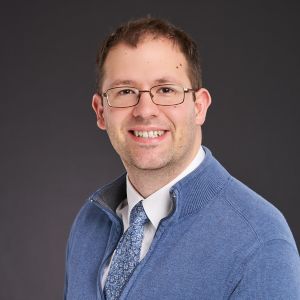St. Jude Family of Websites
Explore our cutting edge research, world-class patient care, career opportunities and more.
St. Jude Children's Research Hospital Home

- Fundraising
St. Jude Family of Websites
Explore our cutting edge research, world-class patient care, career opportunities and more.
St. Jude Children's Research Hospital Home

- Fundraising
Global effort improves patients’ quality of life through palliative care

Artistic rendering of a palliative care specialist interacting with a patient to improve their quality of life. AI-assisted illustration created by Leena Xaypanya.
Palliative care is a field of medicine specifically dedicated to providing relief and support through the inevitable highs and lows during one of the most stressful situations a patient and their family can experience. Palliative care can be part of a patient’s journey at any point in their treatment, including at diagnosis, preventing and addressing a host of challenges from physical symptoms such as pain and nausea along with psychosocial stressors, with the goal of improving quality of life across the cancer continuum.
“Integrating palliative care early into treatment for children diagnosed with cancer has important benefits for the patients and their families,” said Michael McNeil, MD, MPH, St. Jude Global Palliative Care Transversal Program director. “From improved symptom management, quality of life and communication, to reduction in the use of unnecessary or harmful interventions.”
“As palliative care specialists, we meet with patients and families and learn about their lived experience,” added Marta Salek, MD, MPH, St. Jude Department of Global Pediatric Medicine, a palliative oncologist, physician-scientist studying decision-making in resource-constrained settings and a member of the transversal program. “We learn about who they are and what is most important to them. We help carry their story and ensure the care they receive matches their set goals.”
“Most families don’t know, at first, what palliative care is,” said Rima Saad, PhD, MSN, RN, CPHON®, St. Jude Global Pediatric Medicine Global Palliative Care program coordinator, who also worked with the Global Nursing transversal program. “When we explain that palliative care is holistic approach that aims to improve their child’s quality of life, they usually request such care as soon as possible in their treatment journey.”
Expanding the global palliative care community
However, access to palliative care experts can be severely limited. Part of the transversal program’s mission is to collaborate with alliance members in co-designing strategies to improve access to palliative care and quality of care delivery for children with cancer and other serious conditions, ensuring that every child, everywhere, receives the care they need while also advancing the field of palliative care. This results in a mutually beneficial relationship, as there are many opportunities to learn about experiences in resource-constrained contexts that can also be applied to improve patients’ experience at St. Jude, and vice versa.
“If you go to low- and middle-income countries, you see that 90% of the global need for palliative care is there and not even 50% of those patients receive it,” said Ximena Garcia-Quintero, MD, MSc, St. Jude Department of Global Pediatric Medicine, who serves as the transversal program’s manager. “So, our focus is understanding how we can help others build and grow their palliative care programs, and what we can learn from each other.”
The program is building a community where institutions can share successes and challenges to show how one’s experience is not unique and help others grow together. Garcia-Quintero is well-positioned to create those relationships, as she created one of the first palliative care programs in Colombia, giving her firsthand knowledge of the components needed to develop a successful and comprehensive service that meets patients’ and families’ needs. Saad complements that experience. She performed some of the first pediatric palliative care research in Lebanon and spent over a decade as a pediatric palliative care nursing specialist in limited resource settings before her transition to St. Jude Global.
“Our collaborators are interested in implementing new programs or educational projects in limited resource settings, and they don't want to feel alone; they want to build community,” Garcia-Quintero explained. The transversal program is working to build that community. That, however, requires palliative care programs to exist.
Palliative care enables difficult decision-making with limited resources
“In resource-constrained settings, clinicians, patients, and families face challenges different from those faced here at St. Jude,” Salek said. “These challenges complicate decision-making. For example, physicians may not have access to medications needed to treat childhood cancer or have a high patient volume, which makes it difficult to support families going through challenging circumstances. This, in turn, impacts the experiences of the patients and their families.”
Salek’s research focuses on understanding how physicians around the world, often with limited resources, make decisions in difficult cases. Salek has performed interviews to explore decision-making at diagnosis for children with advanced or poor prognosis cancer, and how palliative care principles may help guide those choices – an under-researched area. “We are characterizing the problem using qualitative research methods through interviews and focus groups to understand the perspectives and experiences of those going through those decision-making challenges,” she explained. “From the data we collect, we hope to co-design solutions that can help in a practical way in collaboration with our colleagues globally.”
Learning to ADAPT palliative care worldwide
To learn how the transversal program can help integrate palliative care in childhood cancer care, the team is running the Assessing Doctors’ Attitude on Palliative Treatment (ADAPT) study. Results from ADAPT evaluated physicians’ knowledge and perceptions of palliative care, as well as access and barriers to its integration in specific regions.
“ADAPT has now been distributed in 127 countries around the world with over 3,500 responses, and each region has adjusted the ADAPT survey to local contexts,” McNeil said. “We've identified key collaborators to lead these projects to develop, distribute and better understand palliative care deficits so that we can have a regionally focused and prioritized set of needs and projects to address them.”
Despite regional differences in culture, resources and approaches, ADAPT revealed common barriers to palliative care worldwide. For example, many institutions lack home-based services. Many physicians expressed discomfort regarding palliative care integration, especially grief and bereavement services. The presence of similar challenges provides an opportunity: the program can work with global collaborators to develop practical solutions that can be shared and adapted locally. This includes creating standards and quality measures that are now being co-developed with global collaborators.
Implementing palliative care solutions around the world
The Global Comfort Promise quality improvement package is one example of such a solution. The package, which was published in Cancers, is part of a strategy to reduce pain for children diagnosed with cancer and other serious illnesses to improve treatment continuity.
“One reason pediatric cancer patients in low-and middle-income countries stop treatment is to avoid painful procedures,” McNeil explained. “The biggest source of their pain and anxiety are needle pokes such as vaccines, intravenous line placements, lab draws and similar procedures. In many parts of the world central lines and other needle-minimizing infrastructure is not available, so these kids are getting hundreds of needle pokes throughout their cancer treatment.”
There is a wealth of literature on procedural methods to reduce anticipatory and experienced pain in children. Implementing such measures has already shown success.
“We have helped 26 teams from 26 hospitals in 19 countries reduce patient pain by 53%,” Garcia-Quintero said. “It was so validating to see these children laughing and smiling without the pain or anxiety during needle-procedures.”
“The Comfort Promise shows how the program’s commitment to methodology has real benefits,” Saad said. “By incorporating scientific elements in our early quality improvement and education projects, we can leverage what we have learned to implement on a larger scale.”
Palliative care empowers patients and families, regardless of their circumstances
“Palliative care empowers parents and caregivers to have more control over their child’s journey, rather than leaving them feeling helpless,” Saad explained. “No matter how difficult the situation is, giving them the ability to comfort their child is very powerful.”
While not all palliative care focuses on the end-of-life, it does meet patient and family needs when a patient dies of their disease. “Part of the commitment that we made when we became physicians was to take care of patients from when they are born until the end,” Garcia-Quintero said. “But for palliative care, the responsibility is more because even after the death of a patient, our duty is to accompany the family that has lost their child during their bereavement.”
The St. Jude Palliative Care transversal program is attempting to spread knowledge of the discipline, perform firsthand research and develop worldwide capacity to bring its unique medical philosophy to children everywhere.
“Our goal is to help advocate for children and their family to ensure that they achieve the best quality of life possible while they're navigating treatment,” McNeil said. “Palliative care’s focus every day is to make that child’s day the best day possible.”






